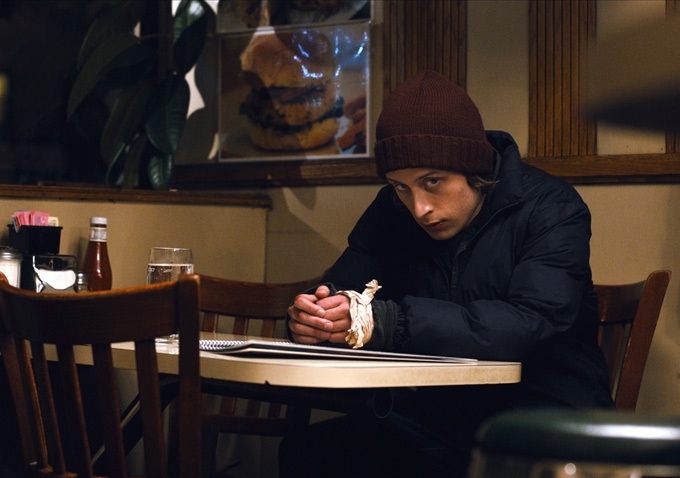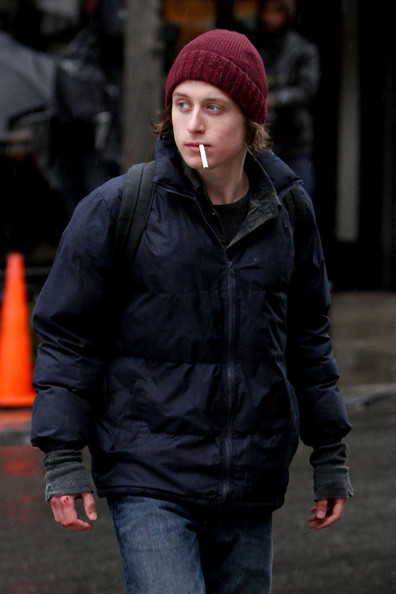Our Tribeca Film Festival coverage continues with Abstew on Gabriel...
Something is not quite right with Gabriel (Rory Culkin). But please, don't call him that. It may be his own name, but just the sound of it is enough to set him on edge. And who knows what he might do? He prefers Gabe. Only his mother (played by Dierdre O'Connell) can get away with calling him by his given name. Well, his mother and one other person. [More...]

From the moment we see him alone on a bus, nervous eyes darting about, chewing his fingers raw, and gripping at a tattered letter, we immediately sense that something is off with our title character. But just how disturbed and what exactly is the source of our unease is not immediately apparent and is only slowly revealed to us as the film progresses. Writer/Director Lou Howe, making his feature film debut, begins to peel back the layers carefully, not giving too much away too soon, but masterfully engaging us in the story just enough to make us want to know more.
It turns out that letter Gabe holds was written to him by Alice (Emily Meade) a girl (perhaps the only girl) that has shown him romantic affection. Gabe is on his way to see her at her dorm convinced that the two belong together. But once he arrives, her name doesn't appear on the door listed on the return address. And even after tracking down her current location, things don't become any clearer. Her roommate very quickly catches him in a series of lies and we discover that, as he punches his hand against a wall, that he may be prone to violent outbursts.
We soon learn that Gabe suffers from mental illness and his impromptu trip to see Alice was an unauthorized side trip on his way back home from the hospital he's been in the care of. It's been decided that as long as Gabe takes his meds, that he can be under his mother's care at home. But things don't seem much better at home as the shadow of his father, who suffered the same illness, hangs over the family. And the only reason Gabe wants to be home at all is so that he can be with Alice. His obsession with finding her propels the rest of the plot of the film. But what could have easily turned into a psychological thriller about a disturbed young man's infatuation with a girl somehow emerges as a realistically portrayed character study of living with mental illness.
 Culkin, who seems to be achieving the adult career that alluded his older brother Macaulay, grounds the action even when it might begin to seem outlandish. Appearing in every scene of the film, Culkin dives into the murky depths of Gabe's mind unafraid to make him unlikable and at times frightening, while still making him understandable. When he wails against his brother (David Call) for bringing home his girlfriend, we see that his unkindness is mainly to mask the hurt he feels that he will never have the normal life that so many take for granted. His scenes with O'Connell as his mother are especially moving as she has a natural, lived-in chemistry with him that makes their relationship believable and heartbreaking. He may be the one suffering from the illness, but she suffers just as much.
Culkin, who seems to be achieving the adult career that alluded his older brother Macaulay, grounds the action even when it might begin to seem outlandish. Appearing in every scene of the film, Culkin dives into the murky depths of Gabe's mind unafraid to make him unlikable and at times frightening, while still making him understandable. When he wails against his brother (David Call) for bringing home his girlfriend, we see that his unkindness is mainly to mask the hurt he feels that he will never have the normal life that so many take for granted. His scenes with O'Connell as his mother are especially moving as she has a natural, lived-in chemistry with him that makes their relationship believable and heartbreaking. He may be the one suffering from the illness, but she suffers just as much.
The ending remains ambiguous, but after the time we've spent with Gabe it's not hard to imagine that things probably don't work out the way he wanted. Mental illness is not something so easily conquered. Nevertheless, Gabriel both the film and the character are compelling and immensely fascinating. But do remember to call him Gabe. B+